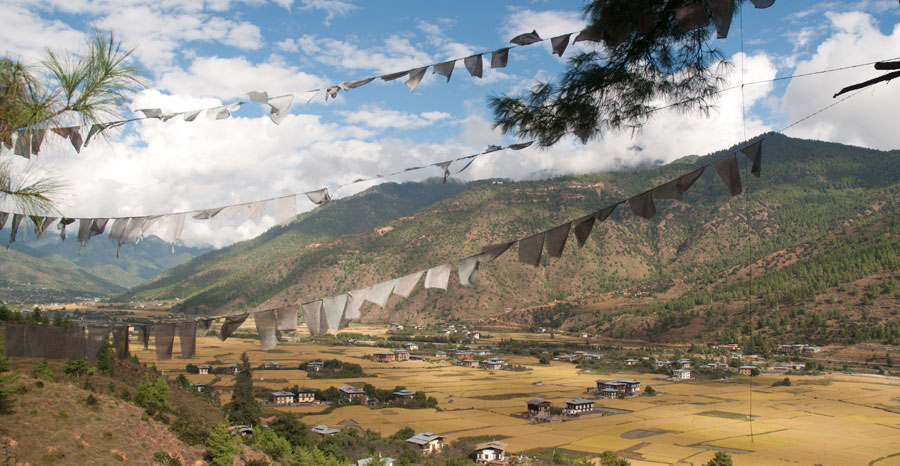About Bhutan

Paro valley is a rice growing district
Wedged between India and China, Bhutan is a tiny landlocked nation in South Asia and one of the last surviving examples of a Buddhist Himalayan society.
Bhutan is an ancient land but a late comer to modern development.
It was only in the 1960s, after remaining in isolation for centuries, that it cautiously opened up to build its first network of roads, schools and hospitals to modernize its traditional subsistence economy.
The first official tourist arrived in 1974 and television and Internet came in 1999.
In recent decades the hermit kingdom has undergone rapid economic, social and political transformation. But while embracing modernity, Bhutan remains a country steeped in and proud of its rich culture and traditions. It has also protected its pristine natural environment in which thrive an astounding diversity of flora and fauna.
Forests cover two thirds of the country and half the landmass is designated as protected areas. Bhutan is today one of the few carbon negative countries in the world.
As a late comer to modern development, Bhutan has dared to be different. Happiness is a national goal and used as a measure of development. Creating the conditions that are conducive for citizens to pursue happiness is a duty of the state.
